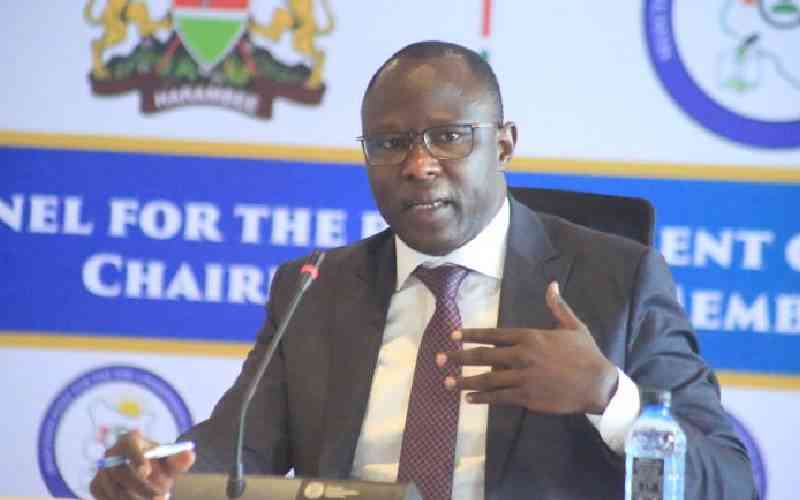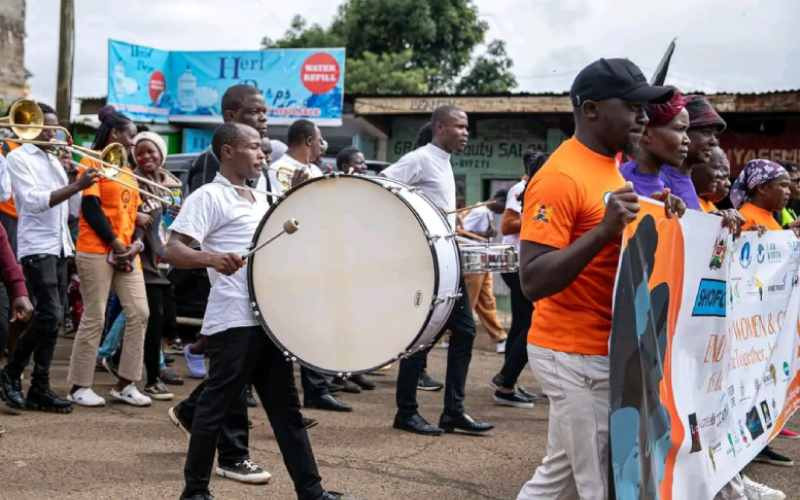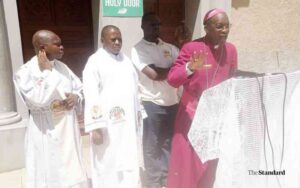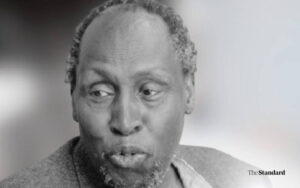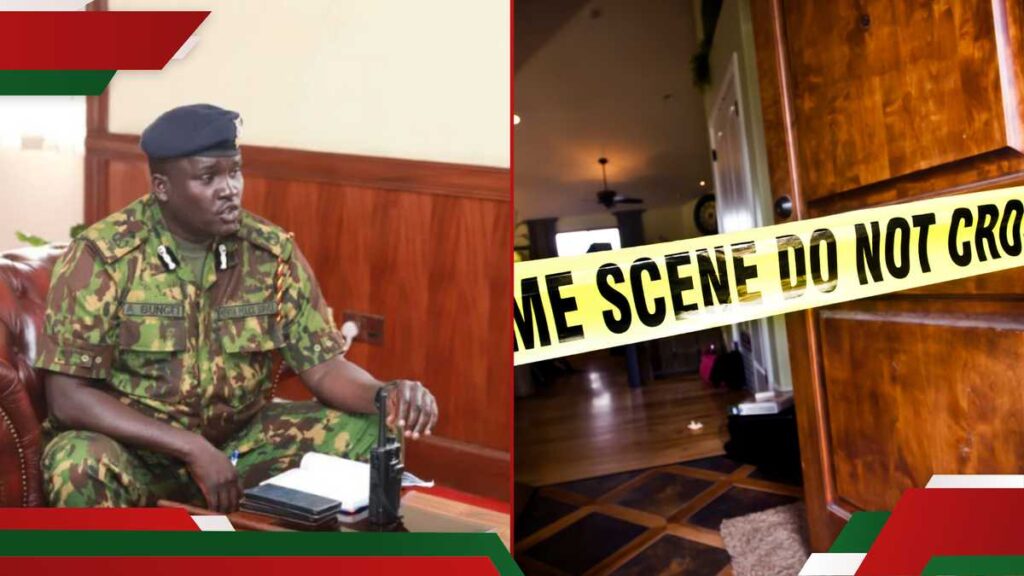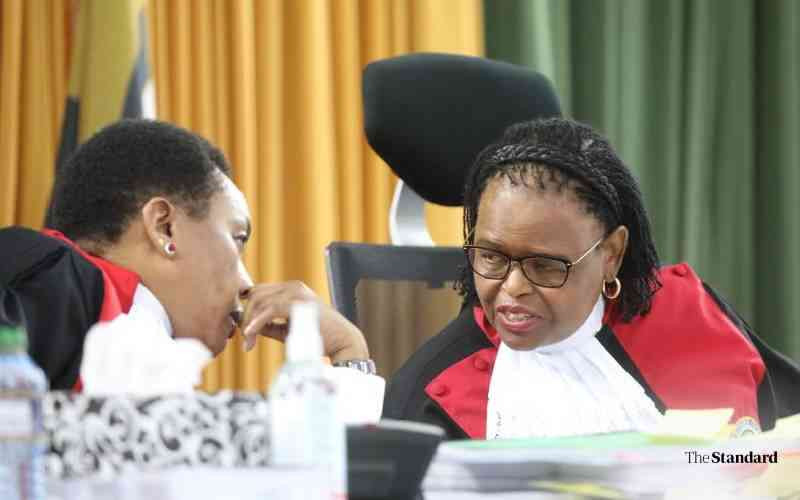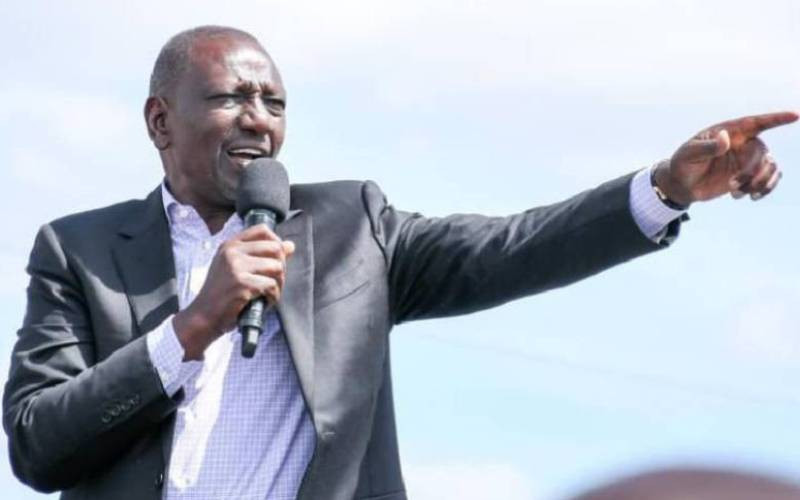The High Court has allowed Members of Parliament to proceed with the vetting of President William Ruto’s nominees to the Independent Electoral and Boundaries Commission (IEBC) but has temporarily barred their formal appointment and swearing-in.
Justice Lawrence Mugambi issued a conservatory order restraining the swearing-in or assumption of office by the seven nominees, including Chairperson nominee Erastus Edung Ethekon, pending the full hearing and determination of a constitutional petition filed by voters Kelvin Omondi and Boniface Mwangi.
“That pending the hearing and termination of this petition, a conservatory order is hereby issued forbidding and or preventing the taking of oath, or assuming of office by the interested parties namely: Erastus Edung Ethekon; Anne Njeri Nderitu; Moses Alutalala Mukhwana; Mary Karen Sorobit; Hassan Noor Hassan; Francis Odhiambo Aduol; Fahima Arafat Abdallah, or any other person or persons as the chairman or commissioners of the Independent Electoral and Boundaries Commission,” Justice Mugambi ordered.
Justice Mugambi emphasized that although Parliament has the constitutional mandate to vet nominees, this does not override the judiciary’s constitutional role in reviewing whether the nomination process itself adhered to constitutional principles.
He ruled that while the vetting may proceed, any further steps such as gazettement or swearing-in must await the determination of the petition by the court.
“For avoidance of doubt, the vetting and approval process in the National Assembly may proceed, but the gazettetting or swearing in of the seven nominees should not happen,” he clarified.
The petitioners have challenged the nomination process of the seven, citing procedural irregularities, lack of transparency, and various violations of constitutional norms.
Through lawyers Paul Muite and Ochieng Odinga, the petitioners argued that the selection process lacked transparency, public participation, and violated several provisions of the Constitution.
“The nomination process was marred by irregularities, lacked transparency, and violated key constitutional provisions, including those guaranteeing merit-based appointments, regional and ethnic balance, and inclusion of persons with disabilities,” said Muite
Muite specifically questioned the inclusion of Hassan Noor in the final list of nominees, stating that his name had not been part of the initial shortlist or the list of applicants advertised to the public.
“We are raising the issue of the fifth Commissioner, Hassan Noor, who was not shortlisted in the initial process. He was not in the advertising list made by the selection panel,” Muite stated.
“He was not advertised or shortlisted. His name was sneaked in. What message does this sneaking send to the Kenyan people who will be voters?” he posed.
Muite urged the court to issue interim orders, arguing that allowing Parliament to proceed with the vetting would render the petition moot.
In a detailed ruling, Justice Mugambi held that the judiciary has a duty to intervene when a credible constitutional threat is identified, even in the absence of actual harm:
Stay informed. Subscribe to our newsletter
“It is the view of this court that judicial intervention is warranted where a credible threat to the Constitution exists. The petitioners have flagged out breaches that warrant the court’s attention, and these must be addressed before the process progresses further,” he stated.
Justice Mugambi rejected preliminary objections by the Attorney General and the National Assembly seeking to strike out the case on grounds that the petition was premature, speculative, and in violation of the doctrines of separation of powers, ripeness, and exhaustion of remedies
He reaffirmed that the High Court has jurisdiction under the Constitution to intervene at any stage of a public appointment process if credible allegations of constitutional violations arise. He emphasized that:
“Unconstitutional decisions cannot be shielded from judicial scrutiny simply because the decision-making body is no longer in existence, or because the process is ongoing.”
The judge referred the matter to Chief Justice Martha Koome for empanelment of a constitutional bench, noting that the petition raises substantial questions of law that require determination by more than one judge.
“This is a matter that is at the very core of our constitutional democracy. And in my view, the issues raised are substantial questions of law on matters that touch the sovereignty of the people. I find that this petition satisfies the requirements of Article 165(4) of the Constitution.”








